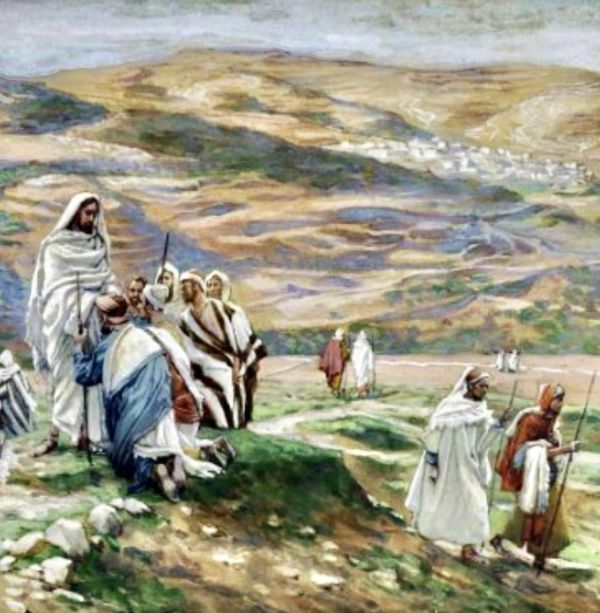The passage proposed for this Sunday is taken from the Gospel of Luke and emphasises Jesus' mandate to his disciples, highlighting how they were to be itinerant preachers of the Gospel.
«Go! Behold, I am sending you out as lambs among wolves. Carry no purse, no bag, no sandals, and greet no one on the road» (Lk 10:3-4).
The Sources document how Francis took this Word of God literally, inviting his friars to do the same.
The Poor Man of Assisi declared himself simple and foolish and taught his brothers the way of simplicity, the sister of true wisdom and meekness.
In the Major Legend we read:
"I want my brothers to be disciples of the Gospel and to progress in the knowledge of the Truth, so that they may grow at the same time in the purity of simplicity. Thus they will not separate the simplicity of the dove from the prudence of the serpent, which the unsurpassed Master has joined together with his blessed Word" (FF 1188).
Francis had the grace to become a great witness even in his encounter with the Saracen soldiers.
He took with him a companion, Brother Illuminato, and decided to proclaim Christ even among those who cut off the heads of Christians.
"So he set out, taking with him a companion named Illuminato, who was truly enlightened and virtuous.
As soon as they set out, they met two sheep.
The saint rejoiced and said to his companion:
'Have faith in the Lord, brother, for the words of the Gospel are being fulfilled in us: Behold, I send you out as lambs among wolves'.
They went on and came upon the Saracen sentries, who, rushing like wolves against the sheep, captured the servants of God, threatening them with death, cruelly and contemptuously mistreating them, covering them with insults and beatings, and chaining them.
Finally, after beating them in a thousand ways, by divine Providence they were brought to the Sultan, as the man of God had wished" (FF 1173).
And often the Poverello "redeemed the lambs that were being led to slaughter, in memory of that most meek Lamb, who willingly went to his death to redeem sinners" (FF 1145).
Moreover, wherever he went to proclaim the Gospel, he brought the greeting of peace to all:
"In every sermon, before communicating the Word of God to the people, he wished peace, saying:
'The Lord give you peace!'.
He always proclaimed this peace with great devotion to men and women, to all those he met or who came to him" (FF 359).
Francis was entirely focused on proclaiming the Kingdom of God, which had now taken possession of him; he burned with the desire to bear witness to it so that it might reach as many souls as possible.
Sunday 14th in O.T. (year C) [Lk 10:1-12, 17-20]












